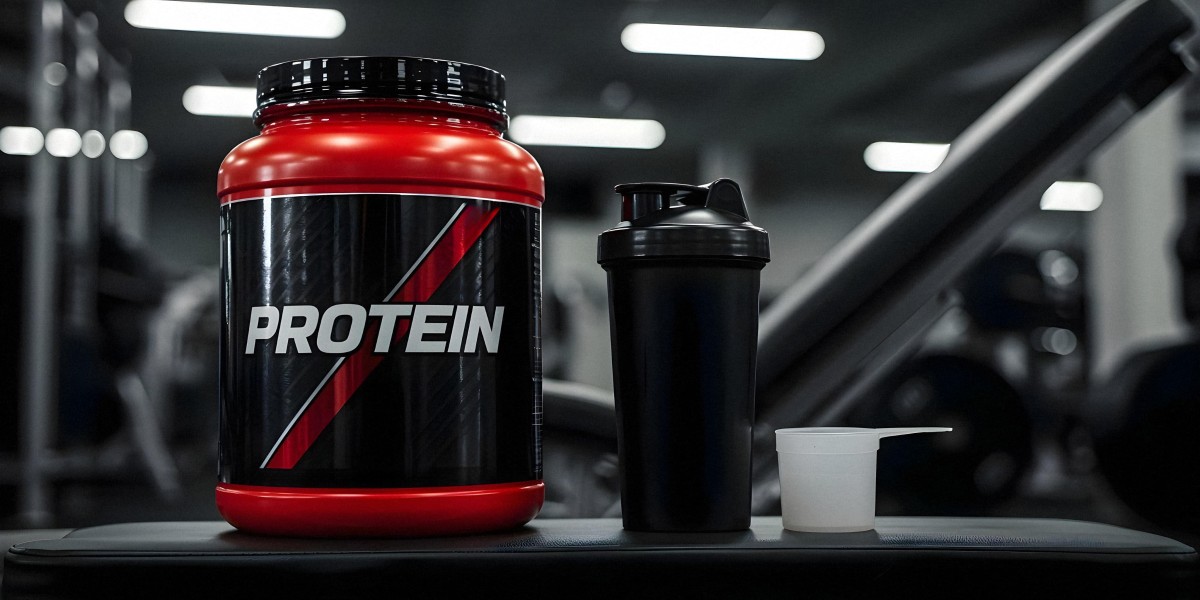Nutrition plays a vital role in supporting energy, recovery, and overall health, especially for those following a conscious lifestyle. For many people, protein supplements are a convenient way to meet daily requirements. Among the healthiest options available, vegan protein powder stands out for being both effective and eco-friendly. Whether you’re an athlete, a busy professional, or simply someone seeking a healthier diet, turning to vegan protein powder can help you achieve your fitness and wellness goals naturally.
Beyond protein powders, there’s also growing interest in whole-food sources of protein. Many individuals are now discovering the benefits of plant protein, which comes from foods like legumes, seeds, and grains. Unlike animal-based proteins, plant protein provides fiber, antioxidants, and essential micronutrients alongside protein, making it a holistic choice for those who want to fuel their bodies without compromise.
Together, these two approaches to protein intake empower people to embrace sustainable nutrition. By replacing animal-based supplements with vegan-friendly alternatives, you’re not just supporting personal health—you’re also making a positive impact on the environment.
Why Choose Vegan Protein Powder?
One of the biggest advantages of vegan protein powder is its digestibility. Many people struggle with whey or other dairy-based proteins because of lactose intolerance or sensitivity, which can lead to bloating and discomfort. Vegan options, typically made from peas, brown rice, hemp, or a blend of plants, are much gentler on the stomach.
Another benefit is its complete nutrient profile. Modern vegan protein powders are carefully formulated to provide all nine essential amino acids, ensuring that muscle recovery and growth are supported just as effectively as traditional animal-based proteins. Additionally, they often come with added vitamins and minerals, making them more than just a protein source—they’re part of a comprehensive wellness routine.
Plant Protein: Beyond Just Fitness
When people think of protein, they often imagine it only in the context of fitness or bodybuilding. However, plant protein has broader benefits. It supports cardiovascular health, thanks to its lower saturated fat content compared to animal protein, and it contributes to better digestion due to its natural fiber.
Moreover, plant protein is rich in phytonutrients, compounds found in plants that promote long-term health by reducing inflammation and supporting immunity. By incorporating plant protein into your daily meals, whether through powders, beans, or nuts, you build a strong foundation for sustainable energy and overall vitality.
Vegan Protein Powder vs. Whole-Food Plant Protein
It’s not about choosing one over the other; instead, it’s about balance. Vegan protein powder is ideal for convenience, especially post-workout or during busy schedules, ensuring you meet your protein needs without hassle. On the other hand, whole-food plant protein sources provide additional nutrients like fiber and antioxidants that powders alone may not offer.
For the best results, combining both is the smartest strategy. Use vegan protein powder for quick shakes and smoothies, and rely on plant protein-rich foods like lentils, quinoa, and chia seeds for everyday meals. This balance gives you the best of both worlds.
Environmental Impact of Plant-Based Proteins
Shifting to vegan protein powder and plant protein isn’t only about personal health—it’s also about sustainability. Animal farming contributes significantly to greenhouse gas emissions, water use, and deforestation. By choosing plant-based alternatives, you actively reduce your carbon footprint while supporting ethical and eco-friendly practices.
In today’s world, where environmental awareness is more important than ever, this shift represents a meaningful step toward a healthier planet.
How to Incorporate Vegan Protein Powder and Plant Protein
It’s easier than you think to integrate these into your daily life. Vegan protein powder blends seamlessly into smoothies, oatmeal, pancakes, or even baked goods. For whole-food plant protein, simple swaps like chickpea pasta instead of wheat pasta, or adding quinoa to your salads, can make a big difference.
Consistency is key—making small but regular changes will help you build sustainable habits that support both health and lifestyle goals.
Frequently Asked Questions
1. Is vegan protein powder as effective as whey protein?
Yes, vegan protein powder is just as effective when it comes to muscle recovery and building strength. High-quality blends provide a complete amino acid profile, ensuring your body gets the nutrients it needs for repair and growth.
2. How much plant protein do I need daily?
The recommended protein intake varies depending on age, activity level, and goals. On average, adults need about 0.8 to 1.2 grams of protein per kilogram of body weight. This can easily be met with a mix of plant protein-rich foods and supplements.
3. Can I replace all animal protein with plant protein?
Absolutely. Plant protein can provide all the essential amino acids when consumed from diverse sources. By combining foods like legumes, grains, seeds, and nuts, you can maintain a well-rounded and complete diet without animal products.
Final Thoughts
Both vegan protein powder and plant protein are powerful tools for achieving a healthier, more balanced lifestyle. They support muscle growth, boost energy, improve digestion, and reduce your environmental footprint. By incorporating them into your diet, you’re making a choice that benefits not only your health but also the planet. Small daily steps, like mixing a protein shake or adding beans to your meals, can have lasting impacts on your wellness journey.






